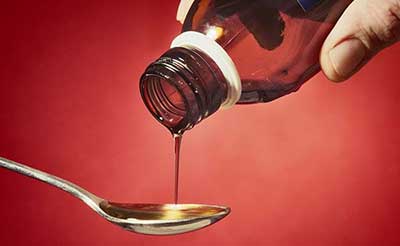Date: 11/10/2022
Relevance: GS-2: Issues Relating to the Development and Management of Social Sector/Services relating to Health, Education, and Human Resources.
Key Phrases: Central Drugs Standard Control Organisation (CDSCO), World Health Organisation, Maiden Pharmaceuticals, Gambia, drug controller general of India (DCGI), The Pharmacy of the World, diethylene glycol and ethylene glycol.
Why in News?
- India’s apex medical regulatory body, Central Drugs Standard Control Organisation (CDSCO), and state authorities have opened investigations into cough syrups manufactured by Maiden Pharmaceuticals after being alerted by the WHO.
- Sixty-six children have allegedly died in the Gambia after consuming the medicines manufactured by the Haryana-based pharma company.
Who is the DCGI?
- The drug controller general of India (DCGI) is the head of the Central Drugs Standard Control Organisation (CDSCO) in India. DCGI is the head of the pharma regulatory framework in the country
Central Drugs Standard Control Organisation (CDSCO):
- The CDSCO is a central drug authority under the Ministry of Health and Family Welfare that regulates the quality, safety, and efficacy of drugs including vaccines as per the provisions of the New Drugs and Clinical Trials Rules, 2019, under the Drugs and Cosmetics Act, 1940.
- This organisation is the nodal authority for the approval of new drugs and clinical trials in the country. It lays down the standards for drug control over the quality of imported drugs.
- The CDSCO also coordinates activities of several state drug control organisations and provides expert advice to bring about uniformity in the enforcement of the Drugs and Cosmetics Act.
- The CDSCO has the power to ban a drug that is considered harmful or sub-therapeutic under Section 26A of the act.
- It is also responsible for granting licences to government hospitals or medical institutions to import drugs for the use of their patients.
- Apart from these functions, the CDSCO is also a nodal authority for registering foreign manufacturers of drugs and medical devices that they want to ship to India.
Presence of toxic chemicals:
- According to laboratory analysis of samples of these syrups — Promethazine Oral Solution, Kofexmalin Baby Cough Syrup, Makoff Baby Cough Syrup, and Magrip N Cold Syrup – revealed the presence of “unacceptable amounts of diethylene glycol and ethylene glycol”.
- These chemicals are toxic to humans and can result in abdominal pain, vomiting, diarrhoea, inability to pass urine, headache, and altered mental state.
- It can also lead to acute kidney injury that can prove fatal in children.
Past incidents:
- In 2020, 17 children died in Jammu and Kashmir after consuming syrup with high levels of diethylene glycol.
- After this tragedy, India phased out cough syrups in favour of suspensions that do not carry the risk of containing the two toxins.
- However, by all accounts, such dubious quality drugs continue to be manufactured, and they often find their way to Third World countries where regulations are weak.
Problems of regulations:
- Preliminary inquiries have revealed that Maiden Pharmaceuticals manufactured the four cough syrups only for export to the Gambia.
- That should be no reason for relaxing regulatory scrutiny on them in the country of their manufacture.
- Under the Drugs and Cosmetic Act, of 1940 the primary remit for monitoring the manufacture and sale of drugs is that of state authorities.
- The CDSCO is responsible for laying down standards and providing expert advice to regulators in the states.
- As the 2020 J&K tragedy highlighted, there is very little information sharing between authorities in the states and the Centre.
- Drugs that fail quality tests in one state continue to be sold in others largely because there is no binding mechanism that stipulates the nationwide recall of such medicines.
Quality-related concerns:
- According to a CDSCO survey in 2014-2016, about five per cent of Indian drugs, several of them manufactured by large pharma companies, failed the quality test.
- Independent studies suggest that this figure could be much higher. The country’s pharma industry has largely been in denial over quality-related concerns expressed by national and international observers.
Need to preserve the reputation in the pharma sector:
- India is being called “The Pharmacy of the World” in some circles. India has got its name mainly due to its dominance in the generic pharmaceutical sector and vaccines.
- The large-scale manufacture and worldwide distribution of Covid-19 vaccines over the past year and a half have brought immense goodwill to India and this reputation must be preserved.
- It is critical to take exemplary corrective measures to ensure that all the good work is not undone.
- Such isolated instances should not be allowed to cast a bad shadow on the entire drug industry.
- The best way to rebuild the reputation as a cheap and reliable supplier of drugs is through a stringent crackdown on irresponsible operators and corrupt officials including those at the highest levels.
- Anything short of that will only serve to further tarnish our reputation as a supplier of dangerous, unsafe, and unreliable medicines.
Conclusion:
- Industry bodies need to do more, including setting up mechanisms for cooperation on quality control amongst firms.
- Adverse reports on Indian medicines, such as those from the Gambia, could dent the country’s well-earned reputation of being the pharmacy of the Third World.
- The drug regulatory authorities at the central and State levels need to get their act together and work in close coordination.
- Strict action should be taken against officials who condone or overlook lapses by pharma firms. Unsafe products must be weeded out before it is too late.
Source: Indian Express
Mains Question:
Q. What are the challenges associated with drug regulations in India and what measures should be taken to improve drug regulation in India?








